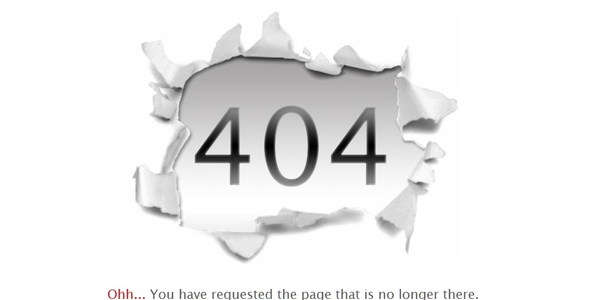
Q: What’s the most scarce and valuable resource online?
A: Trust.
Trust is scarce because anyone can publish content online. There are no publishing companies or editors to separate the good writing from the bad or to make sure all of the sources are double-checked and cited.
Trust is valuable because if once it’s established, you open up the door to a world of opportunity: more readers, higher opt-in rates, and increased product sales. Thankfully, there are methods to make your website more trustworthy and I’ve listed my top 25 below.
25 Ways You Can Gain More Trust Online
#1 Eliminate Broken Links with Free Software
Nothing is permanent – especially on the Internet.
Eventually a link on your website will lead to a place that no longer exists. If a user clicks on that link and is greeted with a 404 page they’re going to be (A) upset that you’ve wasted 5 seconds of their precious time and (B) less trusting of your links in the future.
Avoid this scenario by installing free software that automatically scours your site for broken links and notifies you about them. If you use WordPress I recommend you use Broken Link Checker, which has 4.1 out of 5 ranking.
Oh and if you needed more incentive, broken links are bad for SEO too.
#2 Go Blue
According to color psychology, blue “creates the sensation of trust and security.” So you may want to consider using a blue color scheme for your website, like Facebook does.
#3 Show Yourself
You can establish a lot of trust simply by featuring your name and photo prominently with every article. It can also be good to get a little personal on your about page, as Neil Patel does with a funny cartoon.
Dropbox is a big business. But they still keep a personal touch on their about page: the images and names of all of their employees. Seeing the real people behind a website makes it easier to trust.
#4 Proofread
Always read over your entire post one last time before clicking ‘publish’. I find it’s especially helpful to read the text out loud.
#5 Nix Autoplaying Audio/Video
Hate is a strong word, but I really, really, really don’t like media that plays automatically when you open a web page. It’s disrespectful to me as a user and it’s the fastest way to break my trust.
Autoplay is fine when the site makes it clear that I’m visiting a page specifically so I can play a song or video (like on YouTube). Otherwise, just don’t do it.
#6 Get a Professional Logo
A great logo design doesn’t come cheap, but it’s the single biggest investment you can make in the trustworthiness of your online brand. Your logo will go everywhere you go – from your header to your business card. Hold your logo to a high standard of professionalism and people will view your business in higher esteem.
#7 Allow Comments
Let’s face it: humans don’t exactly have a reputation for being respectful online. So putting a comment box underneath your content is a brave thing to do. You’ve carefully built a website and now you’re just going to open it up for anyone to scribble on?
There’s good reason to allow comments, though. By allowing a public forum for opinions both positive and negative, your website shows confidence in what it’s presenting to the world. It shows that you don’t have anything to hide and that you’re willing to accept fair criticism. To me, that equates to a little bit more trust.
Admittedly, some comments are spam and need to be deleted and not every website necessarily should allow comments. Seth Godin has one of the world’s most popular blogs and it doesn’t have comments (thought that’s mostly for personal reasons).
#8 Get Press and Feature It
A website’s header gets to make the first impression on its viewer. Press is so important for a website’s trust that Income Diary puts some of our press mentions right in the header, to be viewed on top of every page.
Press creates the type of trust you can’t buy or manufacture. It took over 150 years for The New York Times to build its reputation as a trustworthy news source. But it took only a few seconds for Gene Marks to publish this article mentioning Income Diary. In that moment, The New York times lent a little sliver of its hard-earned trust to our humble blog.
Don’t have any press yet? The first step is for you to find a way for your business to be a remarkable story. That’s the hard part. From there, I recommend this free online create your own press release wizard.
#9 Keep Your Copyright Year Up-to-Date
I’ve never thought too much about copyright dates on websites. But when I was writing the last point and scoping out that free press release website, I couldn’t help but notice that their copyright was still for 2010. It made me doubt if I should link to the site.
I determined that the site was still useful even though its owner hadn’t touched in three years (and might not for another three) so I linked to it. But your site might not be so lucky.
Either update every year on January 1st or use php to add a dynamic copyright date that’s always up-to-date.
#10 Implement Testimonials
Testimonials are key to building trust online, especially if you’re selling a product or service. When you have a happy customer or reader, consider asking them to give you a testimonial. Then feature a few of them prominently on your sales page.
#11 Don’t Make Promises that You Can’t Keep
If you tell your audience that you’ll have a post up every Monday, you’d better do it.
#12 Show Your Trophy Rack
Don’t be overly humble about any honors or awards you’ve received. Feature them prominently on your about page and possibly in your header, footer, or sidebar.
#13 Don’t Slip Up (Not Even Once)
“I takes many good deeds to build a good reputation and only one bad one to lose it.”
Benjamin Franklin
In life, “almost always” is almost always good enough. If you remember to floss your teeth before you go to sleep “almost always,” that qualifies as good oral hygiene.
But when it comes to being trustworthy, “almost always” isn’t good enough. It only takes one single piece of untrustworthy information for everything you’ve ever put up online to fall under suspicion.
So don’t think that it’s okay to lie, cheat, steal, or otherwise misguide visitors to your website “occasionally” or “just this once.” As the ever-wise investor Warren Buffett has said, “It takes 20 years to build a reputation and five minutes to ruin it. If you think about that, you’ll do things differently.”
#14 Do Your Research
When I profiled Elon Musk a couple of weeks ago, I started out knowing almost nothing about him. So I went on a research-binge. Before I knew it, I had about 20 tabs running across the top of my browser. 10,000+ words later, I knew Musk’s life story backwards and forwards. Only then did I actually start writing the article.
Research might not sound like fun, but it’s a necessary part of being a good writer. You owe it to your audience to be well-informed about your subject. When your readers notice the many references and facts that are the mark of a well-researched article, they’ll know that what you’re saying can be back up.
#15 Don’t Overreach
“You can’t build a reputation on what you are going to do.”
Henry Ford
“Fake it ’til you make it,” is usually pretty good advice.
But when you claim authority by flaunting something you haven’t really accomplished, people can smell it from a mile away. I’ve seen far too many blogs with authors who claim to be gurus in SEO, web design, blogging, or social media but who are clearly nothing of the sort.
When you’re first starting out online, be up front with people that you’re a beginner. Invite them to join you on your journey to becoming an expert in your field. At each milestone you accomplish, update your about page.
#16 Redesign Your Website
People judge books by their cover and they judge websites by their design. A quality design means quality content that they can trust.
Appearances matter. That’s why one of Twitter founder Jack Dorsey’s life lessons is to “have an amazing haircut.”
If you’re in need of a great new web design, hire a designer from AwesomeWeb today!
#17 Admit When You’re Wrong
Everybody makes mistakes. Even though I research and proofread, I still publish incorrect information and misspellings on this site from time to time.
When you make a mistake online, don’t try to cover it up. Fix it, but own up to it. When your audience sees that you’re willing to admit to your errors and even draw attention to them, you’ll gain a reputation for accuracy and trustworthiness.
At Income Diary, we feature a Facebook widget in our sidebar that proves that over 5,000 people like and trust what we’re doing online. That’s powerful social proof.
You can add a Facebook widget on your website by following this link. Here’s something similar for Twitter and for Google+.
#19 Use Specific Statistics
The footer at the bottom of every Income Diary page cites a blog post that got 20,293 hits in one week. Using a specific number like that is more trustworthy than just saying “tons” or “tens of thousands,” especially when you can back it up with screen shots from your stat page.
Personally, I love it when bloggers lay it all out on the table for their readers: their traffic stats, their income, and their social growth. Even if your numbers aren’t impressive, you’ll gain your readers’ trust by showing you have nothing to hide.
#20 Stay Above the Fray
“Never make negative comments or spread rumors about anyone. It depreciates their reputation and yours.”
Brian Koslow
Online as well as in life, what you say about others reflects more on you then on them. Talking bad about others just makes you look bad.
#21 Reread Old Articles Yearly
Let’s say that you published a blog post about how to optimize your business’s Facebook page back in 2011. Since then, Facebook has changed the page layout to the ‘timeline’ – making some of your advice obsolete. In this instance, you should probably delete or correct the outdated information.
I recommend skimming through all of your published content yearly and looking out for expired content.
#22 Get Certified
There are a host of organizations and services who verify your websites quality and security. If you pass, you can proudly display their badges on your site and boost your trust with visitors.
Good practice seals (with links):
SSL Security certificate providers (with links):
#23 Pick a Good Domain Name
Your domain name says a lot about your website. To make a good impression, keep it short, use .com or .org, and avoid hyphens.
We always hear good things about NameCheap, which is why they’re our top recommendation!
#24 Keep Ads to a Minimum
There’s nothing wrong with having ads on your site. In fact, many of the worlds’ most trusted and respected websites have advertisements – including Google, YouTube, Facebook, and Twitter. At Income Diary, ad revenue has played a major role in monetization.
That said, overwhelming your visitors with ads is only going to tell them that you care more about the almighty dollar than their user experience. Keep ads to a minimum and you’re in the clear.
#25 Be Selfless
When we don’t trust someone, it’s usually because we think they might be putting their own best interests ahead of ours. When you put a ton of your time and energy into something that very helpful to them – like a step-by-step tutorial, in-depth guide, or free ebook – and don’t ask for anything in return, it communicates that you put your readers’ needs first.
Selflessly help a person once and they’ll trust you forever.
Final Words
“If I take care of my character, my reputation will take care of itself.”
D.L. Moody
The quote above really gets to the heart of it. Ultimately, the best way to gain trust online is to have genuinely trustworthy character. Be patient, be honest, keep your promises, and treat other people the way you want to be treated.














